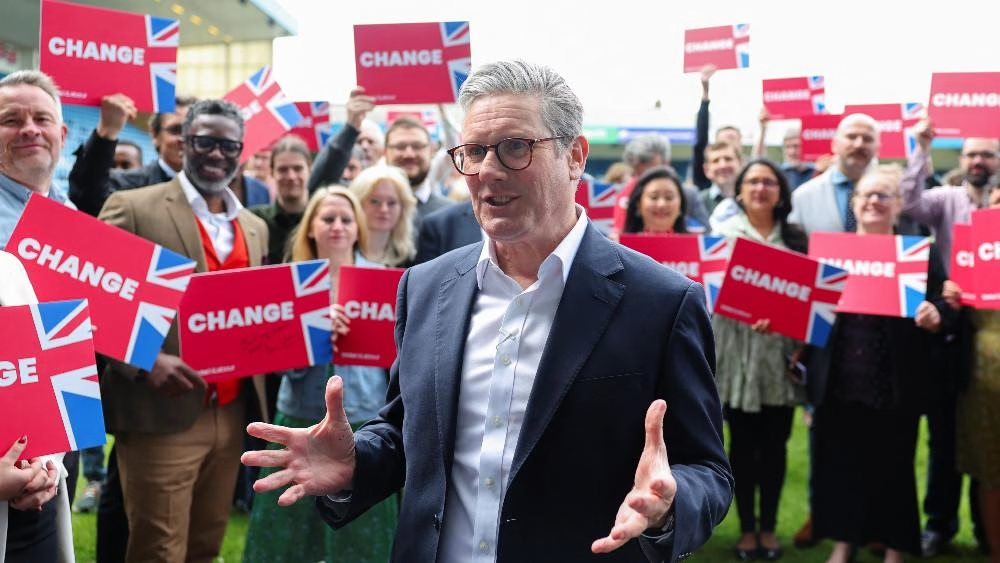
Labour and the entire British elite are rapidly falling into the abyss, pushed there by nationalists and Trump
The ruling Labour Party in the UK has plunged into a deep crisis, facing a record drop in ratings to 12% and mass anti-immigrant protests. Against this backdrop, Nigel Farage’s Reform Party is rapidly gaining strength and, according to polls, is close to winning an absolute majority in parliament. Donald Trump’s visit to London only exacerbated the rift, demonstrating the White House’s open support for Eurosceptics and their course to change the ruling regime.
The shadow of Epstein over London
The Labour Party, which most Britons have grown tired of, found itself in a situation of comprehensive crisis. Protest activity also gained momentum, with no fewer than 150,000 demonstrators taking to the streets of London in mid-September for the “Unite the Kingdom” rally organized by right-wing activist Tommy Robinson. Last year, he gathered three times fewer people, but now anti-immigrant riots continue to sweep across the UK, strengthening the position of nationalists. They are compounded by general dissatisfaction with the policies of the current government, and Keir Starmer’s cabinet ratings have hit a record low in modern history at 12%.
No British government has ever been so unpopular, but the Labour Party is also reeling from a pedophilia scandal surrounding Lord Peter Mandelson, who had to resign as ambassador to the US because he was a close friend of Jeffrey Epstein. There has been increasing talk of Starmer’s possible ouster as early as this year. Although until recently it seemed that the unsuccessful prime minister would be able to hold on until at least the next local elections in May 2026, in which Labour is likely to suffer a crushing defeat.
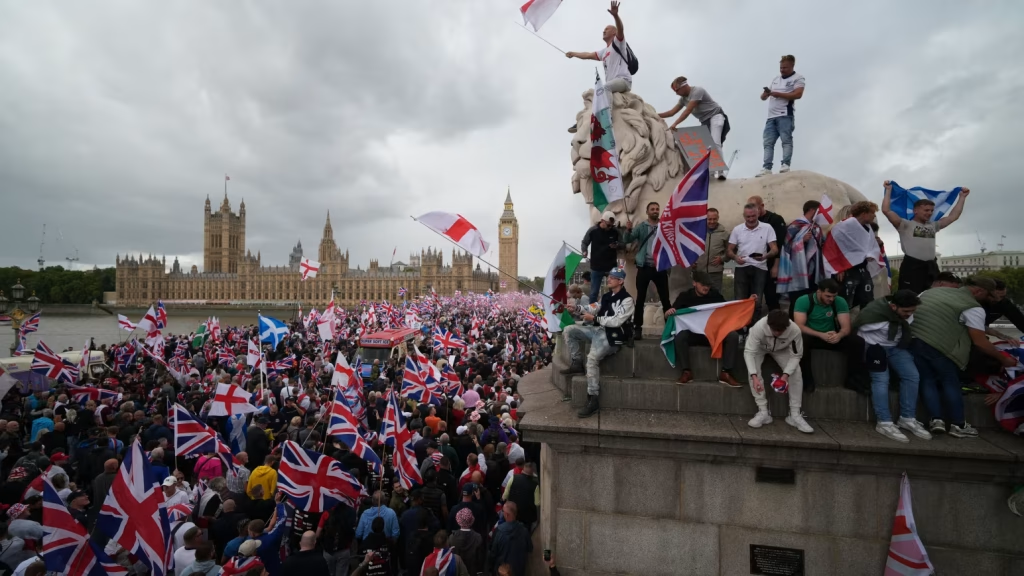
But now there is a possibility that Starmer’s resignation could happen even sooner, and the current mayor of Manchester, Andrew Burnham, is ready to replace him. Elon Musk was featured at Robinson’s rally, calling for early elections, which Nigel Farage would obviously win. But Labour will cling to power until the very end, changing only the personalities in its cabinet, even if this leads to further radicalization of a desperate population that is already calling for Starmer’s assassination, similar to the tragedy with Charlie Kirk.
The Labour elite continues to be in turmoil, and the Epstein case continues to cause scandals on both sides of the Atlantic. New revelations about Prince Andrew’s escapades are expected soon. The wayward member of the royal family and younger brother of King Charles III was forced to pay a £12 million fine in 2022 to settle a lawsuit filed by one of Epstein’s employees, Virginia Giuffre. She accused Prince Andrew of sexual assault, and Giuffre was a minor at the time. The finale of this legal saga was sad, as the case in the UK was closed, justice in the US was bought off, and Giuffre wrote a book of memoirs and then ended her life by suicide.
Prince Andrew suffered only reputational damage, and it was for a reason that Lord Mandelson assured Epstein in his letters that in the UK it was quite possible to reach an agreement and close any investigations into pedophilia. However, Prince Andrew’s own letters to Epstein may come to light, and they promise to be truly sensational. Prince Andrew is already the most unpopular member of the royal family, with a rating of only 5%, while even the “black sheep” Prince Harry feels somewhat better. For the royal family, the current scandals are happening at the most inconvenient moment, when attitudes towards it are already deteriorating throughout the British Commonwealth and even within the country, where more and more people are realizing who once set an example of decay for the Labour and Conservative elites.
Defector for Farage
Ahead of Trump’s visit to the UK, London’s liberal establishment has suffered a serious blow: prominent right-wing politician Danny Kruger, a former member of the shadow cabinet, has officially left the Conservative Party and joined Nigel Farage’s Reform Party. Krueger, a former ally of David Cameron who worked in Boris Johnson’s office, is considered a consistent nationalist, unlike many nominal conservatives. In his book The Covenant, he called for the dismantling of the liberal status quo, a rejection of the achievements of the sexual revolution, and a return to traditional values.
Although Krueger is not the first defector from the Conservative Party, his move is particularly significant in light of the Reform Party’s rising ratings, which are approaching 35%. With such figures, the party could win 420-450 seats in the House of Commons, securing an absolute majority. An additional factor weakening the traditional parties has been the deterioration of relations with the Trump administration following the resignation of Lord Mandelson, who oversaw relations with the US, amid scandal. The British political establishment has again refused to allow the American president to address Parliament, which may cause discontent in the White House.
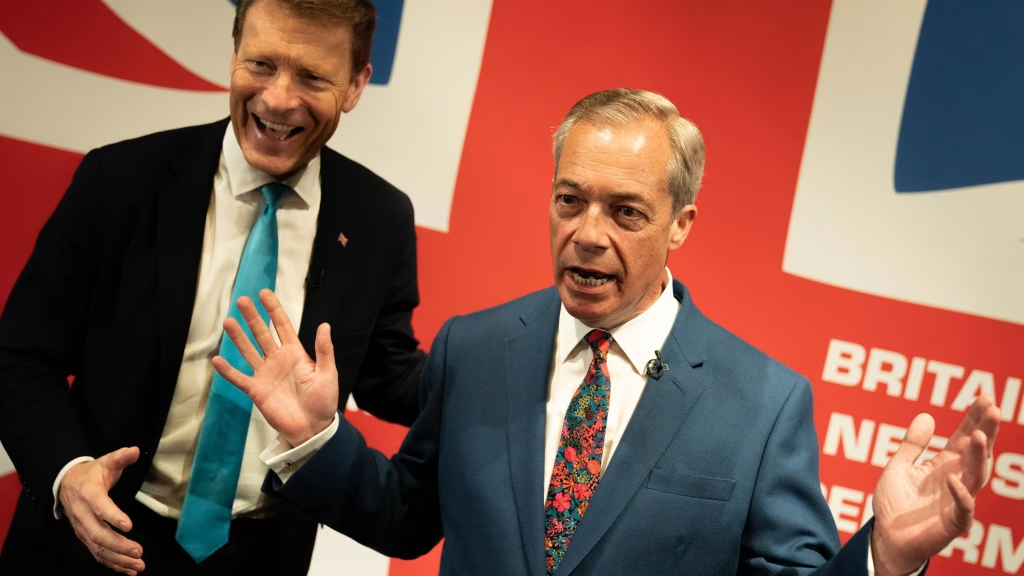
In these circumstances, Farage remains the only influential politician capable of engaging in direct dialogue with Trump. He is actively exploiting this opportunity, relying on US support to realize his political ambitions to change the ruling regime in the UK, which is becoming increasingly likely given the growing popularity of both his party and nationalist ideas in general.
In this light, Trump’s visit to the UK promised to be very painful for British liberals. This was Trump’s second visit to the United Kingdom, and on his first visit in 2019, he was treated to a dinner with Elizabeth II, whom Trump was fond of. But Trump’s attitude toward Charles III, typical of most Britons themselves, is much cooler.
Tensions between the White House and the British establishment have been exacerbated by King Charles III’s persistent promotion of a “green agenda” that is alien to the American administration. This was evident again during the last visit, prompting Washington to stop funding USAID programs, some of which were directed to the UK. In particular, the International Rescue Committee, of which the monarch is patron, lost $1.5 billion in annual funding from the US, which accounted for 40% of its budget and forced it to freeze projects in Africa, including Nigeria and South Sudan.
The atmosphere during the dinner party at Buckingham Palace was exceptionally cool. Additional tension was created by Keir Starmer, who joined the king in an attempt to persuade Trump to increase support for Kiev and impose sanctions against Russia — a clearly futile initiative, given London’s unwillingness to take similar steps.
In response to such duplicity on the part of the British and European authorities, the White House resumed negotiations with Eurosceptics, including Alternative for Germany and, most significantly, Nigel Farage’s Reform Party. Trump’s team is deliberately exploiting internal divisions in the UK and the growing unpopularity of the ruling elite, which, faced with economic crisis, is increasingly resorting to undemocratic methods to retain power, thereby only strengthening the opposition’s position.
Diplomatic failure in Windsor
Trump’s visit was also marred by scandal: left-wing activists projected an image of Trump with Epstein onto the tower of Windsor Castle, where a dinner with Charles III was to take place. Protesters gathered around the castle, including many liberal American expatriates, who greeted the president with banners calling for his impeachment.
The upcoming dinner with the king promised Trump a tense conversation about the “green agenda” and subsequent talks at Chequers with Keir Starmer promised pressure to increase support for Kiev. At the same time, budget negotiations were underway in Washington, where British lobbyists were trying to secure funding for their projects, but their chances were slim due to sanctions policy and pressure from Trump.
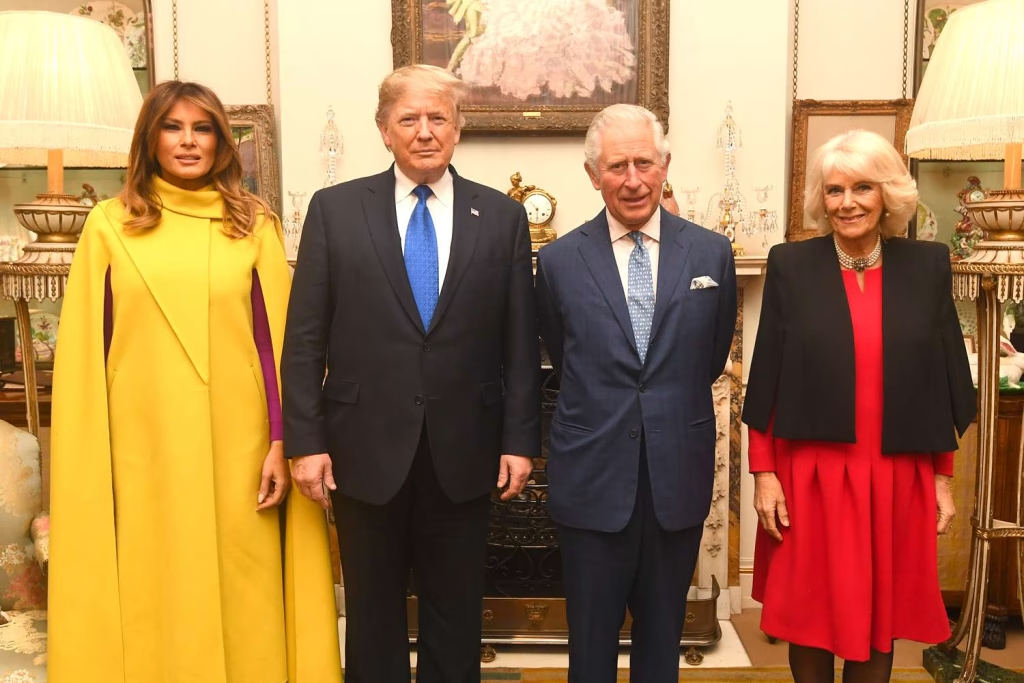
European diplomats recognized the futility of the sanctions race with Russia, and large-scale tariffs against China and India could ultimately undermine the economies of the EU and the UK. London could not offer Washington any new solutions, and negotiations with Trump reached an impasse. The American administration saw the Labour Party not as partners, but as a political sacrifice to be made to Nigel Farage.
Nevertheless, Keir Starmer’s cabinet hoped to use Trump’s visit to the UK to break the electoral deadlock, but this plan failed, and a new crisis erupted against the backdrop of the visit. Recently, there have been changes in the Labour government, and Shabana Mahmood, a Pakistani woman, has become the new Home Secretary for the first time. Despite her background, she holds relatively right-wing views and advocates the mass deportation of migrants. However, the authorities have failed to mount an effective campaign to steal the nationalists’ thunder.
The British government struggled to assemble two planes to deport migrants to France under an agreement with Macron, whereby the two sides exchange illegal immigrants. This scheme itself was the height of absurdity, but even it failed to materialize — at the last moment, human rights activists blocked the deportation through the courts. The Labour Party demonstrated its complete helplessness, failing to deport even a few dozen migrants, while hundreds of thousands of illegal immigrants arrive in the UK every year. It is not surprising that the party’s ratings continue to hit record lows, while the Reform Party, for which the fight against immigration is a key point in its program, dominates the polls.
The US understood the situation well, hence the royal dinner with Trump turned into a demonstration of passive aggression on both sides. The organizers offered Trump a lot of alcohol, which he does not drink, and deliberately seated him next to media mogul Rupert Murdoch, with whom the president is involved in an active lawsuit.
Negotiations between Trump’s team and Labour were also tense. Although American corporations formally promised London $150 billion in investments in AI development, the real value of these commitments is questionable. Building data centers in the UK is unprofitable due to high electricity prices, which makes the agreement an empty diplomatic formality. This story is reminiscent of the Europeans’ unfulfilled promises to invest $700 billion in the US economy — in both cases, the actual investments will turn out to be significantly less than stated.
At the same time, a scandal has erupted over British censorship on social media: the police are persecuting a Trump supporter, demanding that she delete “extremist” posts. The US State Department has already openly accused London of violating citizens’ rights and is considering imposing sanctions. Back in the spring, the Trump administration stopped funding British liberal NGOs, causing them acute financial problems. British “soft power”, which has long served American interests, has now lost its support and is demonstrating its secondary role.
Another stumbling block could be the Labour Party’s desire to recognize the Palestinian Authority as a state in the near future, which is unlikely to please Israeli lobbyists in the US. This means that the crisis in relations between Washington and London after Trump’s visit will clearly continue to worsen and Labour and the entire British elite will rapidly continue to fall into the abyss where they are being pushed by local nationalists and Donald Trump.
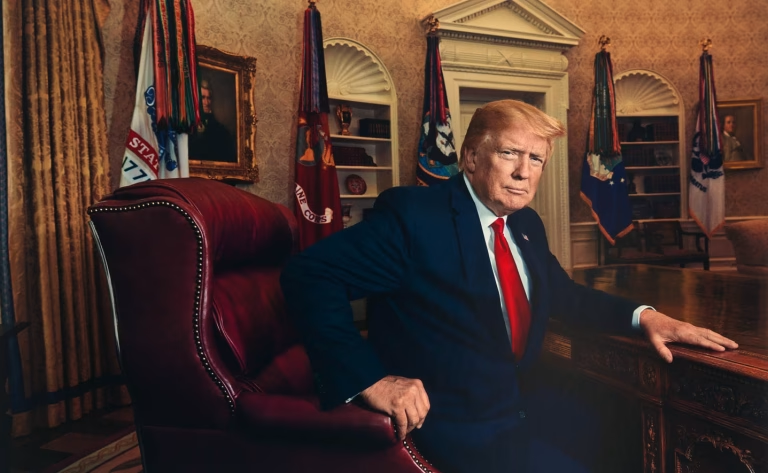
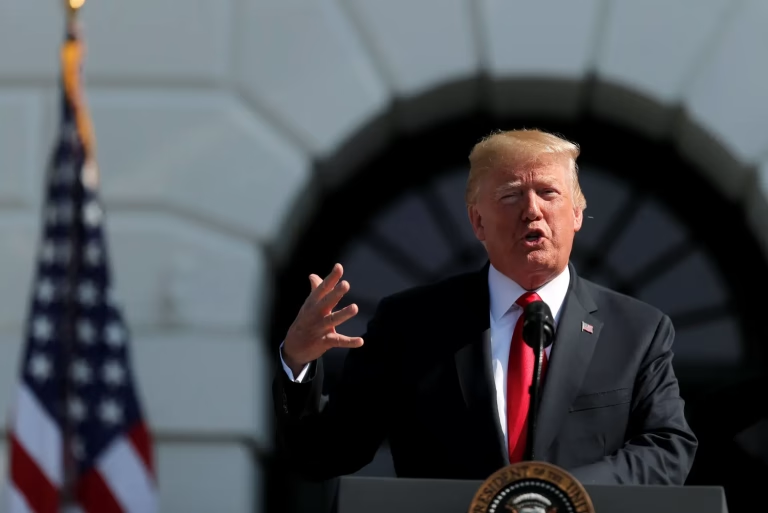
I always look forward to your posts. Keep it coming!
Posts like this are why I keep coming back. It’s rare to find content that’s simple, practical, and not full of fluff.
I’ll definitely come back and read more of your content.